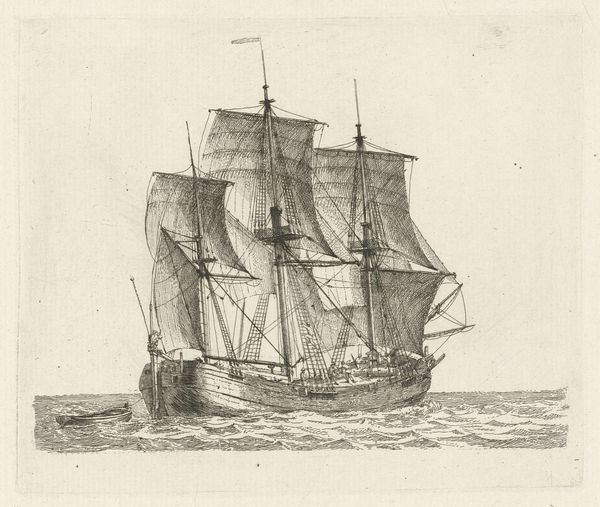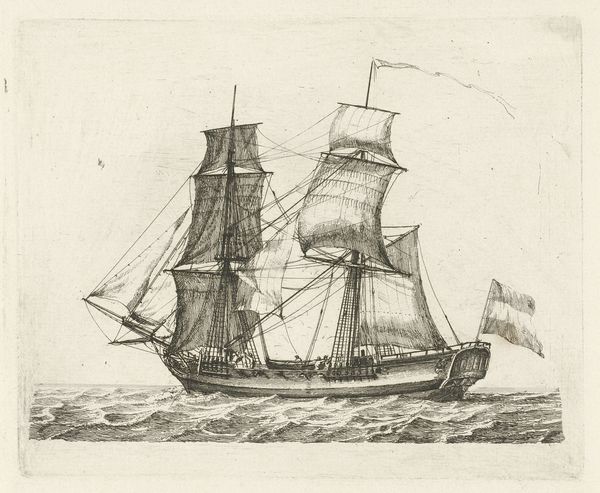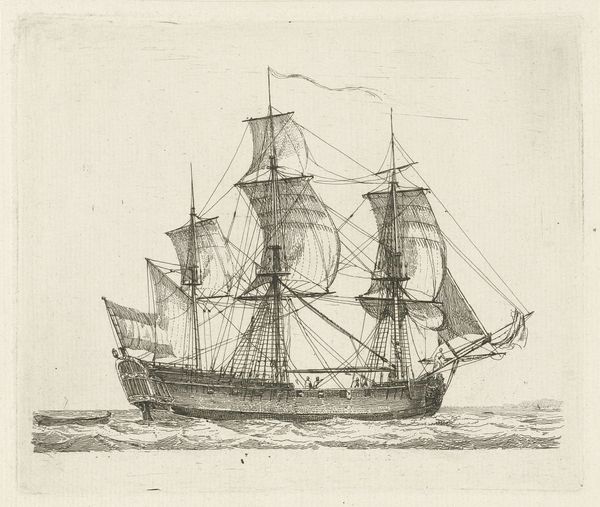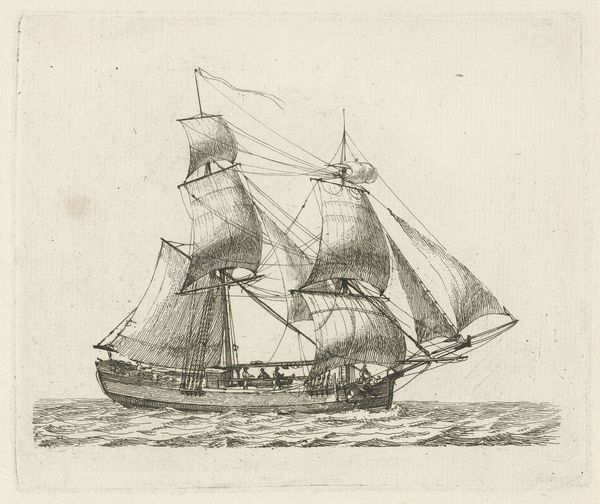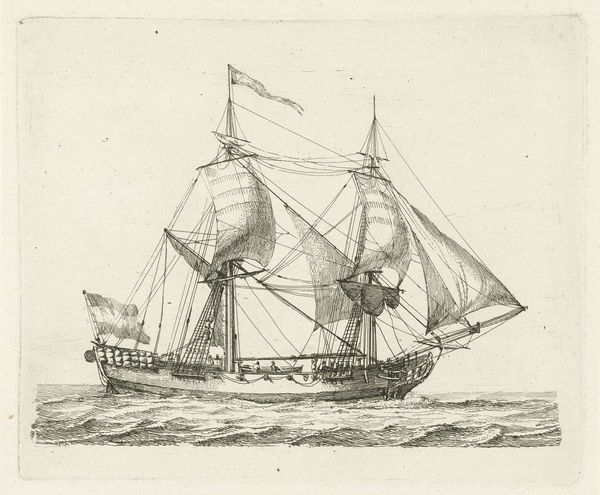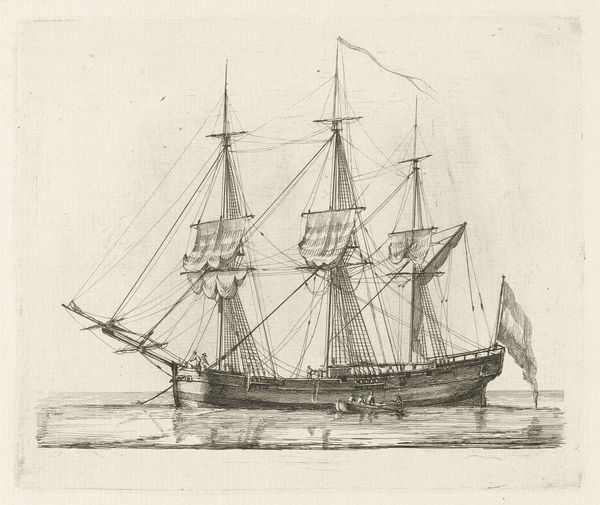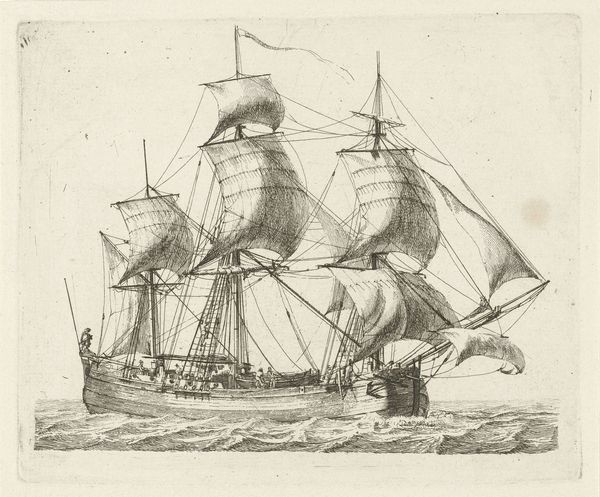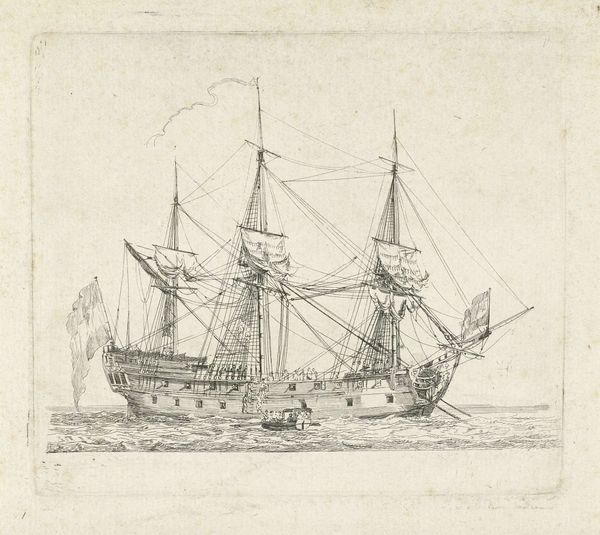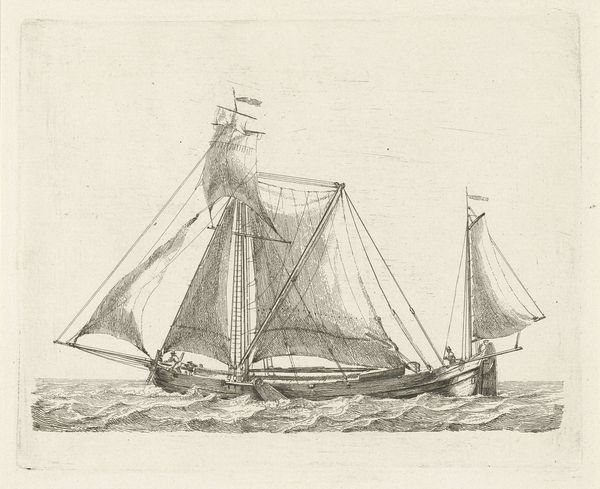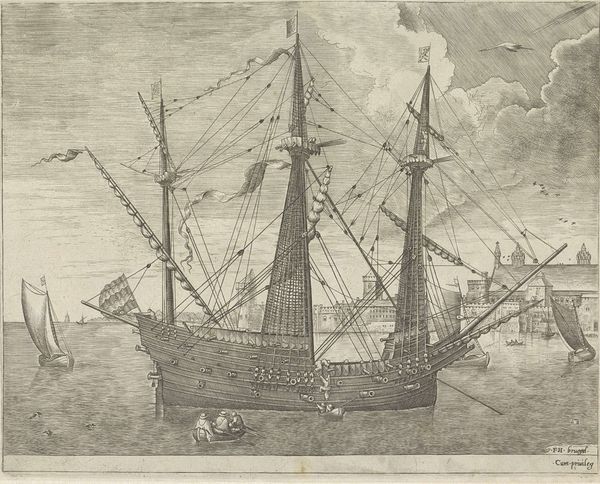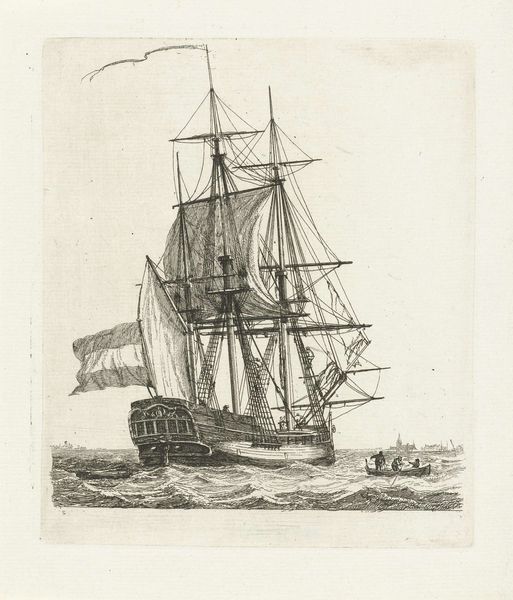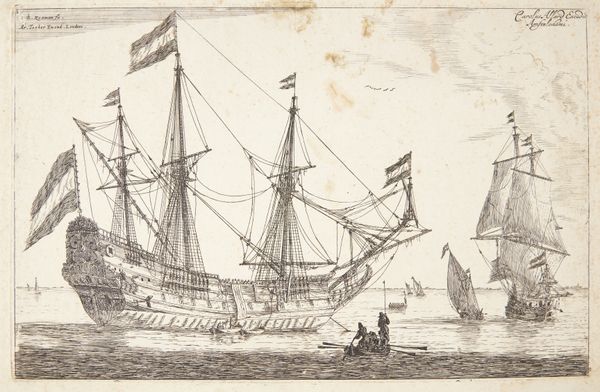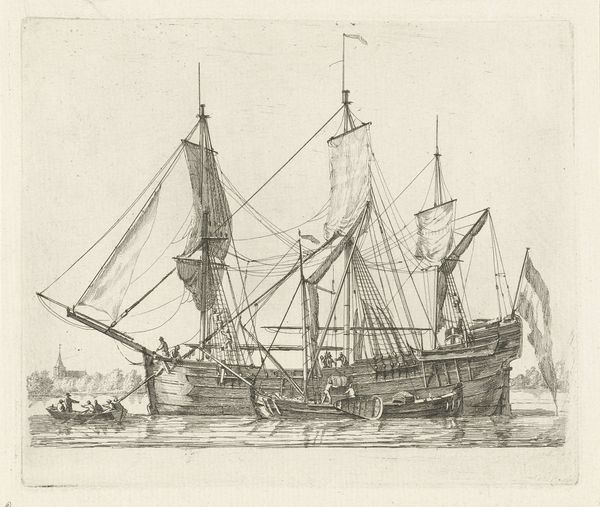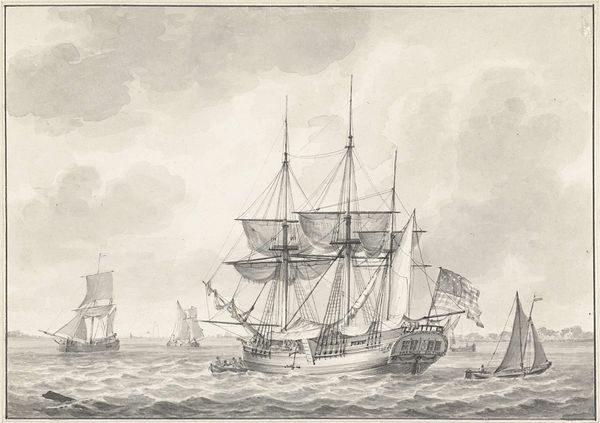
#
architectural sketch
#
amateur sketch
#
quirky sketch
#
pencil sketch
#
personal sketchbook
#
idea generation sketch
#
sketchwork
#
pen-ink sketch
#
sketchbook drawing
#
initial sketch
Dimensions: height 129 mm, width 153 mm
Copyright: Rijks Museum: Open Domain
This etching of a three-masted ship, complete with flag and rowboat, was made by Gerrit Groenewegen in the late 18th or early 19th century. The printmaking process is crucial here. Etching is an indirect method of engraving, using acid to bite lines into a metal plate. The artist would have applied a waxy ground, drawn into it with a stylus, and then immersed the plate in acid. The resulting incised lines hold ink, which is then transferred to paper under great pressure. Consider the social context: Groenewegen lived in a time when the Dutch Republic was a major maritime power. The etching process allowed for the relatively quick and easy production of multiple images, facilitating the distribution of imagery related to naval power and trade. This speaks volumes about the relationship between art, technology, and national identity. Paying attention to the making allows us to appreciate not just the image, but also the means by which it was brought into the world.
Comments
No comments
Be the first to comment and join the conversation on the ultimate creative platform.
